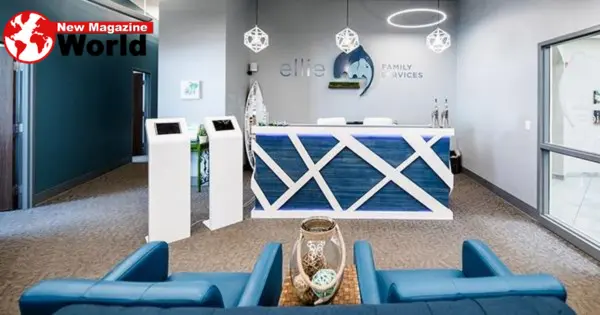Understanding and Nurturing Ellie Mental Health: A Comprehensive Guide

Introduction to Ellie Mental Health
In recent years, the term Ellie Mental Health has gained attention, reflecting a growing awareness of mental health issues and the need for accessible, personalized care. Ellie Mental Health represents a comprehensive approach to mental wellness, emphasizing the importance of tailored treatment plans, professional support, and community engagement. This article explores the various aspects of Ellie Mental Health, from understanding mental health conditions to the importance of personalized care and the role of community support.
Understanding Ellie Mental Health
Ellie Mental Health is a holistic approach to mental wellness that focuses on the individual’s unique needs and circumstances. The term “Ellie” symbolizes the idea of personalized care, emphasizing that each person’s mental health journey is distinct. This approach integrates various therapeutic methods, professional support, and community resources to create a supportive environment for individuals dealing with mental health issues.
The Importance of Mental Health Awareness
Mental health awareness is a critical component of Ellie Mental Health. Increasing awareness helps to reduce the stigma associated with mental health conditions, encouraging individuals to seek help without fear of judgment. Public education campaigns, mental health literacy programs, and open discussions about mental health can play significant roles in promoting awareness and understanding. By fostering an environment where mental health is openly discussed and accepted, Ellie Mental Health aims to create a supportive community for those in need.
Common Mental Health Conditions
Ellie Mental Health addresses a wide range of mental health conditions, each requiring specific approaches and treatments. Some common conditions include:
Anxiety Disorders
Anxiety disorders, such as generalized anxiety disorder, panic disorder, and social anxiety disorder, involve excessive worry or fear that can interfere with daily activities. Ellie Mental Health emphasizes the importance of personalized treatment plans to address these conditions effectively.
Depression
Depression is a mood disorder characterized by persistent feelings of sadness, hopelessness, and loss of interest in activities. Ellie Mental Health approaches depression with a combination of therapy, medication, and lifestyle changes to support recovery and improve quality of life.
Bipolar Disorder
Bipolar disorder involves episodes of mania and depression, significantly impacting an individual’s mood and energy levels. Ellie Mental Health focuses on stabilizing mood swings and providing ongoing support to manage this condition.
Post-Traumatic Stress Disorder (PTSD)
PTSD is a condition that can develop after experiencing or witnessing a traumatic event. Ellie Mental Health incorporates trauma-informed care to help individuals process and recover from their experiences.
Obsessive-Compulsive Disorder (OCD)
OCD involves intrusive thoughts and repetitive behaviors that can be distressing and disruptive. Ellie Mental Health uses cognitive-behavioral therapy (CBT) and other evidence-based treatments to address OCD symptoms.
The Role of Therapy in Ellie Mental Health
Therapy is a cornerstone of Ellie Mental Health, offering individuals a safe space to explore their thoughts, feelings, and behaviors. Various therapeutic approaches can be utilized, depending on the individual’s needs and preferences:
Cognitive-Behavioral Therapy (CBT)
CBT is a widely used therapy that helps individuals identify and change negative thought patterns and behaviors. It is particularly effective for anxiety, depression, and OCD.
Dialectical Behavior Therapy (DBT)
DBT is a form of CBT that focuses on teaching coping skills and emotional regulation. It is often used to treat borderline personality disorder and other conditions involving emotional dysregulation.
Trauma-Focused Therapy
Trauma-focused therapy is designed to help individuals process and heal from traumatic experiences. This approach is essential for those with PTSD and other trauma-related conditions.
Mindfulness-Based Therapy
Mindfulness-based therapy incorporates mindfulness practices to help individuals stay present and reduce stress. It is beneficial for a range of mental health conditions, including anxiety and depression.
The Importance of Medication Management
For some individuals, medication can be an essential part of their Ellie Mental Health treatment plan. Psychiatrists and other medical professionals work closely with patients to determine the most appropriate medications and dosages. Medication management involves regular monitoring and adjustments to ensure the best possible outcomes. Commonly prescribed medications include antidepressants, antianxiety medications, mood stabilizers, and antipsychotics.
Community Support and Ellie Mental Health
Community support is a vital aspect of Ellie Mental Health. Building a supportive network can significantly impact an individual’s mental health journey. This support can come from family, friends, support groups, and mental health organizations. Community resources such as hotlines, online forums, and local support groups provide additional avenues for individuals to seek help and connect with others facing similar challenges.
The Role of Lifestyle in Ellie Mental Health
Lifestyle choices play a crucial role in maintaining and improving mental health. Ellie Mental Health emphasizes the importance of a holistic approach that includes:
Physical Activity
Regular exercise has been shown to improve mood, reduce anxiety, and enhance overall mental well-being. Incorporating physical activity into daily routines can have significant mental health benefits.
Nutrition
A balanced diet rich in nutrients supports brain health and can impact mood and energy levels. Ellie Mental Health encourages individuals to adopt healthy eating habits as part of their overall wellness plan.
Sleep Hygiene
Quality sleep is essential for mental health. Poor sleep can exacerbate mental health conditions, while good sleep hygiene can improve mood and cognitive function. Ellie Mental Health promotes healthy sleep practices to support overall well-being.
Stress Management
Effective stress management techniques, such as mindfulness, meditation, and relaxation exercises, are integral to Ellie Mental Health. These practices help individuals cope with daily stressors and maintain mental balance.
Integrating Technology in Ellie Mental Health
Technology has become an invaluable tool in supporting mental health care. Ellie Mental Health leverages digital platforms to provide accessible and convenient care options:
Teletherapy
Teletherapy allows individuals to access therapy sessions remotely, making mental health care more accessible to those with busy schedules or limited mobility.
Mental Health Apps
There are numerous mental health apps available that offer resources, exercises, and support for various conditions. These apps can be a valuable supplement to traditional therapy and treatment plans.
Online Support Groups
Online support groups provide a platform for individuals to connect with others facing similar challenges, offering a sense of community and shared understanding.
Conclusion: The Future of Ellie Mental Health
Ellie Mental Health represents a comprehensive and personalized approach to mental wellness, emphasizing the importance of individualized care, professional support, and community engagement. By addressing the unique needs of each person and fostering a supportive environment, Ellie Mental Health aims to improve the quality of life for individuals dealing with mental health issues. As awareness continues to grow and resources become more accessible, the future of Ellie Mental Health looks promising, with the potential to make a significant impact on mental health care worldwide.




